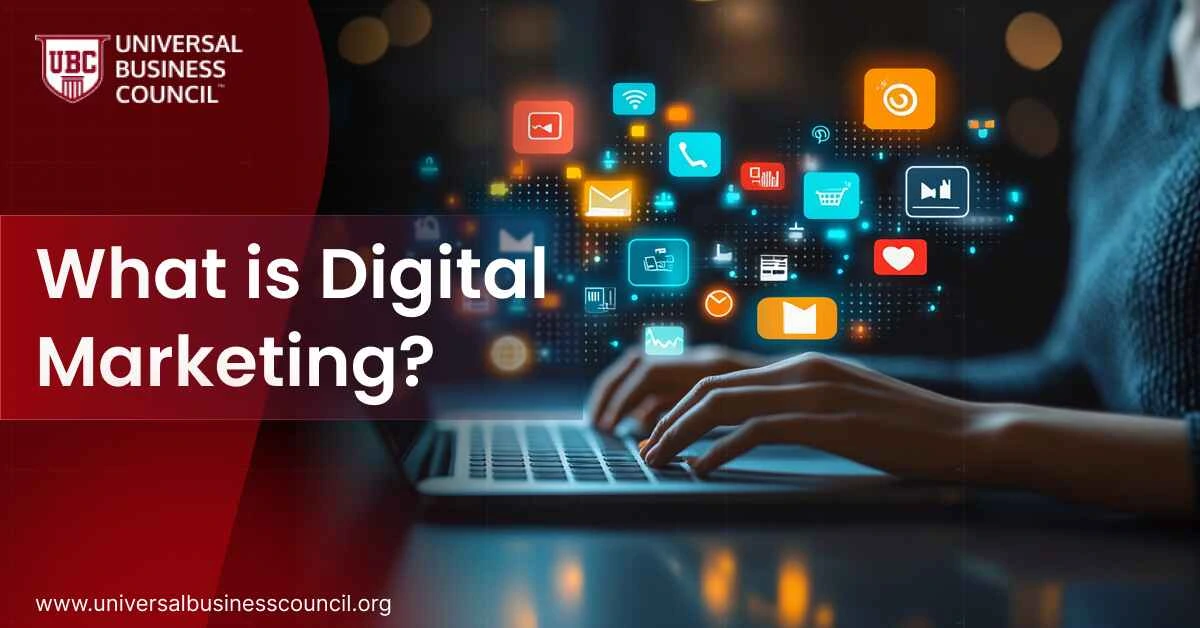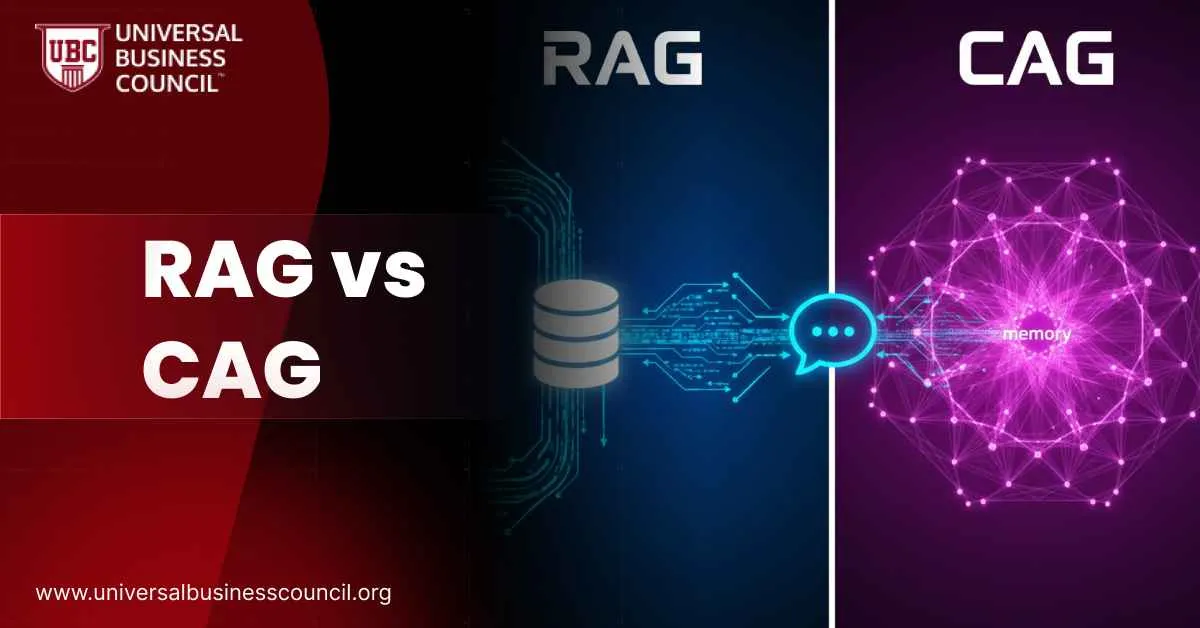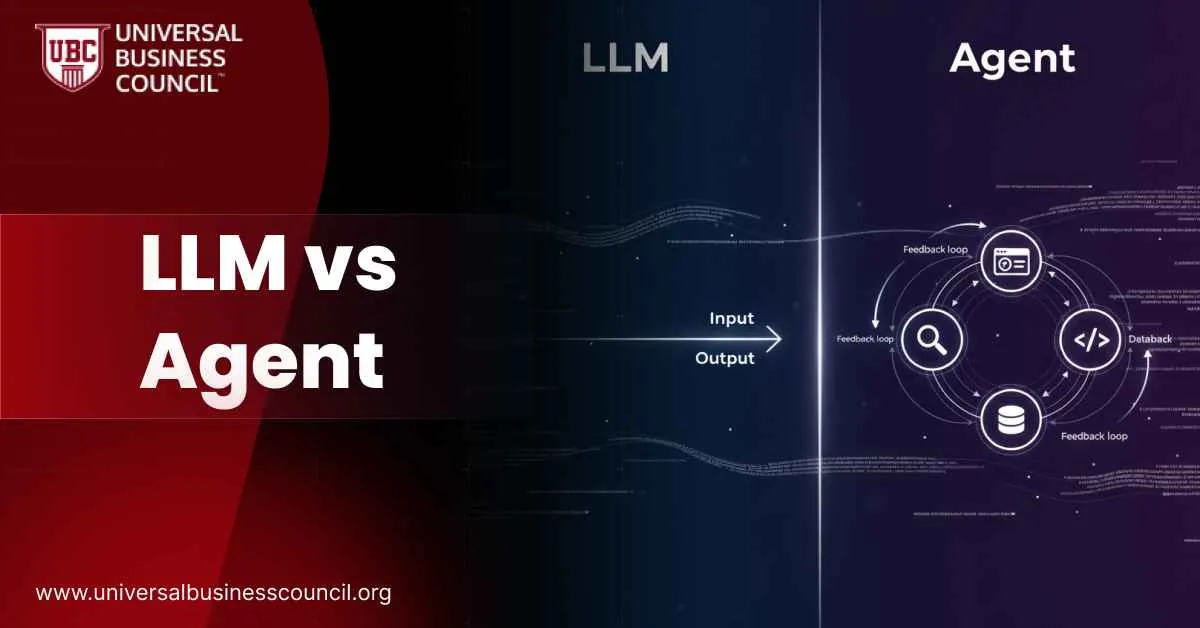 Digital marketing or online marketing is the promotion of brands to connect with potential customers using the internet and other forms of digital communication. This includes a range of activities to reach and engage customers through their electronic devices such as smartphones, computers, and tablets. It includes but not limited to:
Digital marketing or online marketing is the promotion of brands to connect with potential customers using the internet and other forms of digital communication. This includes a range of activities to reach and engage customers through their electronic devices such as smartphones, computers, and tablets. It includes but not limited to:
- Social media
- Email
- Text and multimedia messages
- Web-based advertising, etc.
Essentially, if a marketing campaign involves digital communication, it’s digital marketing.
How Digital Marketing Works
Digital marketing is all about setting up a series of online signs and tools to guide people to your products or services. Let’s take a simple example to understand how digital marketing works.
Suppose you own a bakery. Now you can promote it among your friends and family but is that all you need for success?
What about the city-wide and nation-wide customers? What about international customers? That’s where digital marketing is needed. Considering you have a bakery, here is how digital marketing would work in your case:
- Create Content: Content is the primary part of digital marketing. It can include anything from articles to pictures and these days, reels and YouTube shorts. You can start by posting pictures and recipes of your delicious pastries online. This content is what draws people’s attention. It works as the online display of your bakery.
- Search Engine Optimization (SEO): Search engine optimization basically means optimizing your content so that it’s easily discoverable on search engines like Google, Bing, Yahoo, etc. SEO is like putting up signs that lead to your bakery. By using the right words in your content, you make it easier for search engines to find your bakery. Suppose someone searches for “best pastries near me” or “birthday cakes,” then your bakery would show up to them.
- Social Media Marketing: Social media marketing or SMM includes telling about your bakery on social media platforms. You can use platforms like Facebook, Instagram, and Twitter to talk about your bakery, share offers, and interact with customers.
- Email Marketing: Email marketing is sending invitations to potential customers over emails. You can collect email addresses from your visitors (with their permission) and send them updates, birthday wishes with discounts, or information about new products.
- Pay-Per-Click (PPC) Advertising: You have heard about flyers right? In digital marketing, you use digital ads instead of flyers to hand out information about your bakery. You pay for ads on platforms like Google or Facebook. You only pay when someone clicks on your ad. Instead of paying the distributor for each flyer they hand out, you pay the advertising platforms.
- Analytics: This is checking how well your signs and tools worked. Did people come to the bakery? What did they buy? Tools like Google Analytics help you see where your visitors come from, which ads they clicked on, and what they looked at on your site.
Knowing the fundamentals of SEO is important to start your journey and land a job in this field. The
Certified SEO Expert certification can certainly help you out with this.
Inbound Marketing Versus Digital Marketing
| Aspect |
Inbound Marketing |
Digital Marketing |
| Focus |
Customer-centric |
Channel-centric |
| Approach |
Attracts customers organically by creating valuable content and experiences |
Utilizes various online channels to reach and engage with potential customers |
| Strategy |
Pull strategy |
Push strategy |
| Goal |
Attract, engage, and delight |
Reach, convert, and retain |
| Techniques |
Content marketing, SEO, social media |
PPC, display ads, email marketing |
| Customer Interaction |
Initiated by customer |
Initiated by marketer |
| Cost Efficiency |
Generally lower long-term costs |
May require higher initial investment |
| Relationship |
Builds long-term relationships with customers |
Transactional interactions |
Why is Digital Marketing Important?
You know what digital marketing is and how it works. But the question is: why is digital marketing important?
We live in a data-driven digital world. The post-pandemic world has essentially shifted towards everything digital. In such a world, digital marketing is crucial because it connects businesses with their customers when they are online and is effective across all industries.
The global digital advertising market continues to see robust growth, with an expected increase to $526 billion by the end of 2024. This is up from $485 billion in 2023, indicating a significant year-on-year growth trend.
Here are reasons why digital marketing is important:
- Reach: Digital marketing lets businesses reach a vast audience that is already spending time online. For example, there are billions of users on Facebook and YouTube. Businesses can reach these users through advertisements or content marketing.
- Cost-Effective: Compared to traditional marketing methods like TV ads or billboards, digital marketing is less expensive. This makes it easier for small businesses to compete with bigger companies without needing a huge budget.
- Targeted: Businesses can show their ads to people based on what they like, their age, or even if they visited the website before. For instance, if someone looked at a product on a website but didn’t buy it, the business can show ads for that product to the person while they browse other sites.
- Engagement: Digital marketing enables businesses to engage with customers, getting immediate feedback through social media comments or messages. This helps businesses learn what customers like or don’t like and respond quickly.
- Measurement: Digital marketing lets businesses see detailed results about how many people saw their ad, how many clicked on it, and more. This helps them understand what works and what doesn’t, and improve their future campaigns.
- Adaptability: With digital marketing, businesses can quickly change their strategy based on what is working. If an ad isn’t performing well, it can be adjusted or stopped altogether with minimal cost.
B2B Versus B2C Digital Marketing
| Aspect |
B2B Digital Marketing |
B2C Digital Marketing |
| Target Audience |
Other businesses |
Individual consumers |
| Decision Making |
Typically longer decision-making process |
Often shorter decision-making process |
| Content |
Educational, informative |
Entertaining, emotionally appealing |
| Channels |
LinkedIn, email, industry forums |
Social media, search engines, email |
| Tone |
Professional |
Relatable, conversational |
| Relationship |
Focus on building trust and credibility |
Focus on building brand loyalty |
| Sales Cycle |
Longer, relationship-based |
Shorter, transactional |
| Metrics |
Lead quality, conversion rate |
Engagement, conversion rate |
Types of digital marketing
- Search engine optimization: Enhancing a website’s content and structure to improve its visibility in search engine results pages.
- Content marketing: Creating and sharing valuable, relevant content like blog posts or videos to attract and engage a target audience.
- Social media marketing: Using platforms like Facebook, Twitter, and Instagram to promote a brand, engage with customers, and distribute content.
- Pay-per-click marketing: A model of internet advertising where advertisers pay a fee each time one of their ads is clicked.
- Affiliate marketing: Earning a commission by promoting other people’s (or company’s) products through a partnership.
- Native advertising: Ads that blend in with the content of the platform where they appear, looking and feeling like natural content.
- Influencer marketing: Partnering with influential people on social media to promote products or services to their followers.
- Marketing automation: Using software to automate marketing tasks like emails, social media posting, and ad campaigns to increase efficiency and personalization.
- Email marketing: Sending emails to a group of people to promote products, inform them about deals, or provide updates and content.
- Mobile marketing: Reaching customers through mobile devices via SMS, mobile apps, and other mobile channels.
- Video marketing: Using video content to promote and market your product or service, increase engagement on digital and social channels, or educate your customers.
Benefits of Digital Marketing
Digital marketing is like the online version of handing out flyers at a shopping mall, but smarter and more cost-effective. Here’s how it benefits businesses, especially if you’re just starting:
- Let’s consider the previous bakery example. Instead of just telling people in your neighborhood, you can tell the whole city, or even the world, about your finger-licking cakes. Digital marketing helps you reach more people than you ever could just physically.
- With digital marketing, you can show your ads to people who like cakes, instead of everyone (including cake haters, yes such people exist). This means you’re not wasting time and money reaching people who aren’t interested in what you’re selling.
- You can see how many people saw your ad, clicked on it, or even bought something because of it. This helps you understand what’s working and what’s not. For example, if you notice more people buying your cakes when you post pictures of your new flavors, you’ll know to do that more often.
- It’s usually cheaper to advertise online than to pay for billboards or TV ads. Plus, because you can target your ads so specifically, you spend less money to reach the right people.
- If an ad isn’t working, you can change it right away without waiting or paying extra. Suppose your new pineapple cake isn’t hitting it off with customers. You can quickly switch your promotion to your best-seller tiramisu which might be more popular.
- Digital marketing isn’t just about selling. It’s also about talking to your customers regularly. Through emails, social media, and even your website, you can keep customers informed, answer their questions, and even get their ideas on what they want to see in your shop next.
How to Create a Digital Marketing Strategy?
- Know Your Audience: Think about who you want to reach with your marketing. Are they young adults interested in sports? Or maybe busy parents looking for quick dinner recipes? Knowing who you are talking to helps you choose the right way to talk to them.
- Set Clear Goals: What do you want to achieve with your digital marketing? Do you want more people visiting your website, or do you want more customers to buy your product online? Set goals that are clear and that you can measure. For example, “Increase website visitors by 20% in three months.”
- Choose the Right Platform: Decide where you will share your message. Each platform works best for different types of messages and audiences. For instance, Instagram is great for visuals and can attract a younger audience, while LinkedIn might be better for professional and business-related content.
- Create Engaging Content: Whatever you are sharing, make it interesting and useful. If you’re selling a product, how can it solve problems for your customer? Maybe show how it works with a video or write about real-life benefits in a blog post.
- Plan your budget: How much money can you spend? Digital marketing can include paid ads on Facebook or Google, but there are also free ways to reach people, like posting on your own social media pages or improving your website so more people find it when they search online.
- Monitor and Improve: After your marketing is out there, watch how it does. Are more people visiting your website? Are sales going up? Use tools like Google Analytics to see what’s working and what’s not. Then, use what you learn to make your future marketing even better.
Let’s see this applied to the previous bakery example:
You own a small bakery and want to attract more local customers. Your audience is people living nearby who enjoy fresh-baked goods. Your goal might be to increase foot traffic in your store by 15% in the next two months. You decide to use Instagram to post mouth-watering photos of your daily specials and Facebook to run ads targeted at local residents. You set aside a small budget for these ads. Every week, you check your sales numbers and the amount of new followers on your social platforms to see if your strategy is working.
What Does a Digital Marketer Do?
- They manage campaigns and interactions on platforms like Facebook, Twitter, and Instagram to engage with a broad audience.
- They produce content like blog posts, videos, and graphics that aim to attract and retain the audience’s attention. This could include creating content that ranks well in search engines or is shareable on social media.
- They design email campaigns to communicate with customers directly, providing updates, promotions, or personalized messages.
- They optimize content to rank higher in search engine results and manage paid ad placements to increase visibility.
- They monitor and analyze the performance of marketing campaigns and website traffic to refine strategies and improve effectiveness.
Does Digital Marketing Work for All Businesses?
Yes, digital marketing can be effective for all types of businesses, whether they’re small local shops or large corporations. The strategies might differ based on the company’s size, target audience, and industry, but the fundamental principles of reaching and engaging customers online apply universally. Businesses can adjust their digital marketing strategies to focus on the most relevant channels and techniques for their specific needs.
Key Performance Indicators (KPIs) in Digital Marketing
| KPI |
Description |
| Traffic Metrics |
Understanding the sources and nature of website visits |
| Engagement Metrics |
Assessing social media interaction such as likes, shares, and comments |
| Conversion Metrics |
Measuring the effectiveness of turning visitors into buyers or leads |
| Email Marketing Metrics |
Evaluating open rates and click-through rates in email campaigns |
| SEO Performance |
Monitoring search engine rankings, organic traffic, and backlink quality |
Digital Marketing Challenges
- Staying updated on platform algorithms for content visibility.
- Tracking performance indicators to measure digital marketing effectiveness.
- Aligning branding and messaging across various platforms.
- Ensuring content accuracy amidst rampant misinformation.
- Focusing resources on actively engaged social media platforms.
- Adapting to Google Analytics 4 (GA4) for data analysis.
- Targeting and managing potential customers effectively.
- Creating engaging content that drives conversions.
- Staying informed and adaptable to emerging trends and technology.
Conclusion
Digital marketing is all about promoting stuff online. Whether it’s through social media, getting found on Google, or other ways, it’s how businesses reach people on the internet. As technology changes and people use the internet more, knowing digital marketing basics is super important for businesses to stay ahead online. By using digital marketing well, businesses can get noticed online, connect with the right people, and grow successfully in the digital world.
 Digital marketing or online marketing is the promotion of brands to connect with potential customers using the internet and other forms of digital communication. This includes a range of activities to reach and engage customers through their electronic devices such as smartphones, computers, and tablets. It includes but not limited to:
Digital marketing or online marketing is the promotion of brands to connect with potential customers using the internet and other forms of digital communication. This includes a range of activities to reach and engage customers through their electronic devices such as smartphones, computers, and tablets. It includes but not limited to:



